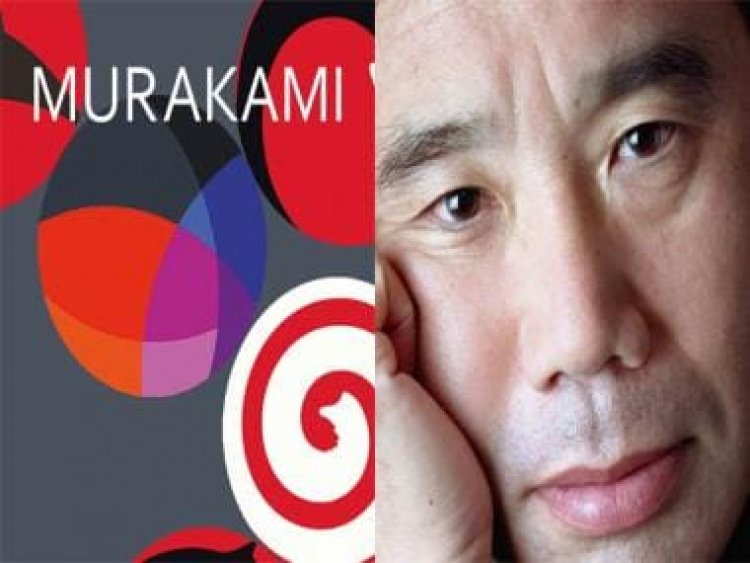Book Review| In 'Novelist as a Vocation,' Haruki Murakami explores his own psyche
Book Review| In 'Novelist as a Vocation,' Haruki Murakami explores his own psyche

In Novelist as a Vocation (translated from the Japanese by Philip Gabriel and Ted Goossen), Haruki Murakami makes it clear that he considers writing novels to be his main job. Although he’s hammered out memoirs and short story collections, he seems to give them the same space that one sets aside for a side hustle. The title, therefore, seems apt. In many of the essays, however, he adds cautious notes to suggest that his methods mainly work for him; they needn’t work for others, as well.
The popular argument in literary circles is that anybody can write a novel, provided that the person has a certain level of education along with a certain degree of imagination. But what’s more important between the two? The scales would inevitably tip in the favor of the latter. And if the argument goes beyond this field, it can be said that there’s a difference between giving it a shot and making a career out of sitting behind a desk day after day in order to tell stories that transform the cultural landscape of the world.
No writer would have been able to write a book about writing without spending at least a decade with a pen and paper (or a laptop). Novelist as a Vocation is the result of Murakami having spent nearly three and a half decades as a full-time writer – the book was originally published in Japanese in 2015; its English translation has been made available only now. In these seven years, Murakami has penned a few more works of fiction. What keeps him going at this age (he’s currently in his seventies) isn’t really a mystery. He just enjoys what he does.
And he also follows a strict routine that involves going to bed early. When it comes to Murakami, his ardent fans know that he puts the aspect of physical fitness, too, on the chart. He’s a regular runner and a swimmer. He writes, “Whether you write novels or short stories, to maintain creativity over a long period of time you need the kind of staying power that makes this continual process possible.” To make it possible, he offers, “You need to become robust and physically strong. And make your body your ally.”
The essays are divided into short chapters, such as “So What Should I Write About?” and “On Originality.” Murakami employs several metaphors to make a point, albeit without beating around the bush. In “Regarding Schools,” he concentrates on the years he slogged away as a student in school. He obviously put his time to good use by reading English paperbacks instead of worrying about exams. I wish he had stepped on the pedal of creative writing courses, though. Would it have been too much to ask?
In On Writing: A Memoir of the Craft, Stephen King bluntly states, “If you want to be a writer, you must do two things above all others: read a lot and write a lot. There’s no way around these two things that I’m aware of, no shortcut.” Murakami also has a similar opinion with regard to reading. “It is especially important to plow through as many novels as you can while you are still young. Everything you can get your hands on – great novels, not-so-great novels, crappy novels, it doesn’t matter (at all!) as long as you keep reading.” Nevertheless, he places the act of writing below reading. I tend to agree with King on this particular subject.
King is another author who’s been in this business since the 1970s. And he knows what he’s talking about. Writing can definitely come later, as Murakami hints, but one has to set the ball rolling somehow. Novelist as a Vocation, apart from throwing some much-needed light on several threads that go into the making of a novelist (rather than a novel), also focuses on the skills that Murakami has picked up on the job. He proclaims that he switched to narrating in the third person as his novels got lengthier.
Many artists and writers constantly fear that they’ll be dragged away from the pedestal they are put on. But Murakami doesn’t think about it that way. He was criticized severely when his early novels were published in his home country. Now, however, he’s celebrated all over the world. The journey hasn’t been easy for him. It has taken him numerous years and risks to reach the top – he sold the jazz bar that he was running to focus solely on writing. And with his mesmerizing stories, he has shown readers – and budding writers – that imagination can also be polished with the help of determination.
Novelist as a Vocation (Publisher: Harvill Secker; Pages: 224)
Karthik Keramalu is a writer. His works have been published in The Bombay Review, The Quint, Deccan Herald and Film Companion, among others.
Read all the Latest News, Trending News, Cricket News, Bollywood News, India News and Entertainment News here. Follow us on Facebook, Twitter and Instagram.
What's Your Reaction?


























































